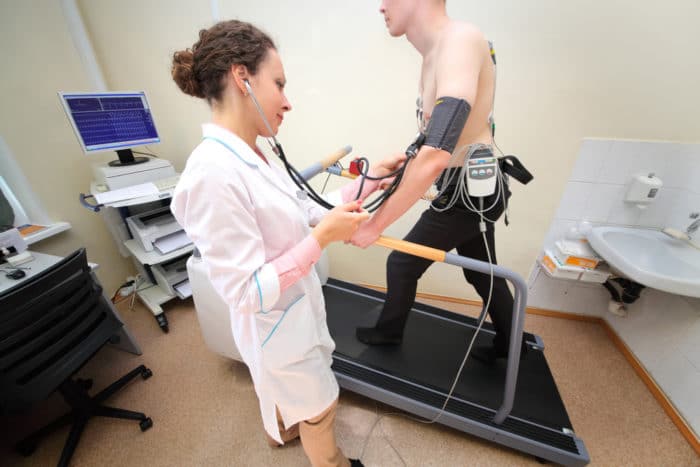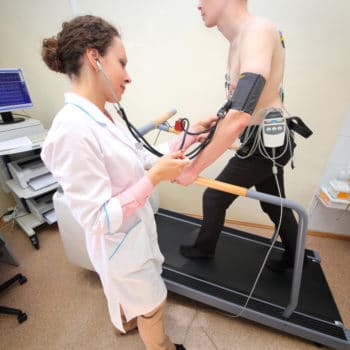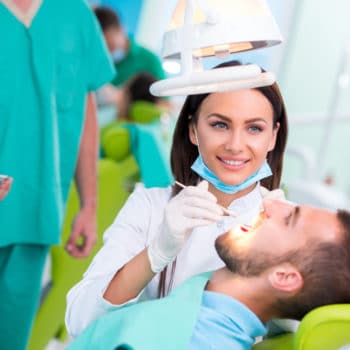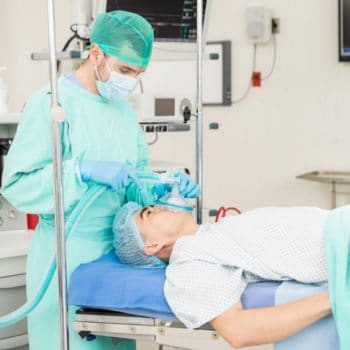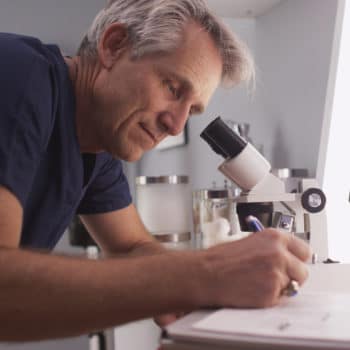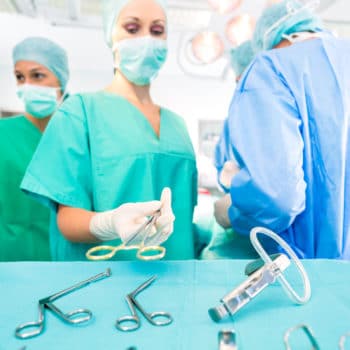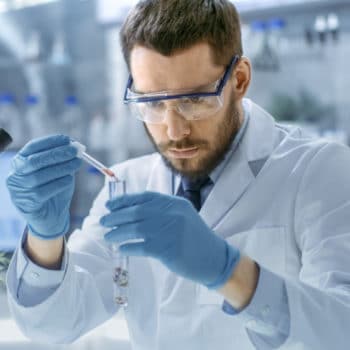Why We Love It
-
$49,740Potential Avg. Salary*
-
Growing DemandJob Outlook
* Salary & growth data is based on the recent Bureau of Labor and Statistics data published at https://www.bls.gov/oes/current/oes291128.htm for 29-1128 Exercise physiologists 11/2021. Based on national data, not school-specific information. Conditions in your area may vary.
With a bachelor of science in anatomy and physiology, you’ll gain the beginning education needed for a successful career in medicine. An anatomy and physiology degree provides graduates with a thorough education in human functions and structures.
Though many premed students choose to study biology as undergraduates, a degree in anatomy and physiology may provide better preparation for medical school.
What is a Degree in Anatomy & Physiology?
A bachelor of science in anatomy and physiology is a common premed major. Students who aspire to enter the medical field and work as doctors, dentists, and surgeons will be able to satisfy the minimal premed requirements, but their thorough study of human anatomy and physiology prepares them to excel both on the MCAT and in medical school.
Students will take basic biology courses as well as courses in reproductive, circulatory, and neurological systems, learning in depth how human bodies work.
Students will take a variety of different types of classes in an anatomy and physiology degree program. Most colleges offer lecture-based courses, labs, and internship opportunities.
While most graduates go on to earn graduate and professional degrees and become licensed dentists, doctors, surgeons, or pharmacists, there are options for careers even with a bachelor’s degree alone. Some graduates use the skills they learned in their bachelor’s program to work in exercise science or as medical assistants.
Recommended Schools
What Courses Would I Take For a Major in Anatomy & Physiology?
- Cell Biology
- Organic Chemistry
- Systems Physiology
- Elementary Physics
- Human Nutrition Science
- Principles of Biochemistry
- Exercise Physiology
- Gross Human Anatomy
What Jobs Can You Get with a Degree in Anatomy & Physiology?
Individuals with degrees that lead to careers in the medical field have a bright future ahead of them. The Baby Boomer generation—one of the largest of our time—is at or nearing retirement age.
This is expected to significantly increase demand for medical professionals in the coming decades as this aging generation will need increased medical care. With a degree in anatomy and physiology, graduates can expect to find work easily in a medical profession as demand for professionals will be high.
How Long does it take?
A bachelors in Anatomy & Physiology will have a typical length of 4 years in a full time schedule. That said, there are many ways to speed up the timeframe by either taking more units via online coursework, community college, or taking free classes at OnlineDegree.com that could transfer to universities in the US.
Online Anatomy & Physiology Degree
Anatomy-physiology is a difficult field of study that is closely related to the medical field. The difficulty of these programs makes them less popular compared to other available programs.
You can still find this specialization by several universities with few programs offered completely online. It should be noted however that studying anatomy-physiology online can be less efficient compared to on campus learning due to the practical nature of some of the courses. This is even more important if you are planning to advance your career to work in a medical profession.
What Can You Do With an Anatomy & Physiology Degree?
Anatomy-physiology is a program that focuses on understanding human bodies. Anatomy is the study of the structure of human bodies including various cells, tissues and organs while physiology focuses on the normal functioning of the body and how these parts interact together.
Physiology uses the principles of physics and chemistry to explain the body’s phenomena and processes. Anatomy-physiology represents the basic scientific foundations for all medical sciences and professions. This science has developed significantly with the invention of advanced microscopes, body imaging techniques and other analytical tools.
It is a field of choice for students who are interested in the medical field but are more passionate about the scientific knowledge rather than its clinical applications.
What does an anatomy-physiology student learn?
Anatomy-physiology is a highly specialized field of study focusing on one of the topics taught to medical students. They study the body’s anatomy and physiological processes in detail with the underlying mechanisms. The following list shows the courses that are commonly offered in anatomy-physiology degree programs:
- Introductory and fundamental courses: biology, chemistry, physics, calculus, statistics, and experimental design.
- Cell biology: it is the study of the structure and function of the cell as the basic structural unit of living organisms. This includes sub-cellular organelles as the nucleus, mitochondria and Golgi apparatus.
- Organic chemistry: this is a branch of chemistry that focuses on the properties and reactions of compounds present in living organisms. These compounds consist mainly of three elements which are carbon, hydrogen and oxygen.
- Systems physiology: it is a comprehensive course that integrates theoretical and computational data to explain the physiology of biological systems.
- Human nutrition science: this course introduces the nutritional needs of human bodies including proteins, carbohydrates, fats and minerals.
- Biochemistry: it is a branch of chemistry that focuses on biological compounds from a functional point of view as enzymes, hormones, biomarkers and cell signaling molecules.
- Gross human anatomy: this is an essential course of the program introducing the general structure of the human body as seen following the dissection of the body.
- Neuroanatomy: it is a branch of anatomy that focuses on the complex neuronal networks in the body and the mapping of their functions.
Now I have the anatomy-physiology degree…where can I work after graduating?
Anatomy-physiology is a basic science degree that is essentially a part of medical studies but focuses on the scientific background rather than the practice of medicine.
Graduates of anatomy-physiology degree programs can work in research fields in medical institutes or may choose to get more training and advance to some type of medical profession. The career is usually exciting and financially rewarding. The following list shows different career options available to anatomy-physiology graduates:
- Medical scientists: research in the medical field is highly valued and attracts intense research efforts around the world. It has gained more recognition and attention with the spread of the COVID-19 pandemic.
- Medical laboratory technician: the role of this job is to analyze the various biomarkers in the body for diagnosis and monitoring of diseases.
- Physical therapist: the role of a physical therapist is to help people who are injured or have some health conditions to improve their movement and manage their pain. They also participate in rehabilitation and preventive care.
- Medical writers: anatomy-physiology graduates have the knowledge to write content for websites, books or magazines.
- School or college teachers: graduates from these programs are qualified to teach the subjects of their specialization to students in high schools or medical colleges.
Should I choose an anatomy-physiology degree?
Studying anatomy, physiology and related subjects is certainly challenging to most students. These subjects contain difficult and complex details that requires intense effort and dedication to study. However, studying these topics will help you develop several important skills that are useful for your career:
- Attention to detail: learning anatomy and physiology introduces the importance of fine details as a single protein or enzyme on the overall functions of the body. Students learn to pay attention to accurate details.
- Memory skills: studying anatomy depends heavily on memorizing much content and details. Students develop their skills to memorize the content efficiently and quickly.
- Data analysis skills: physiology scientists use details from the analysis of laboratory assays and imaging techniques to draw valid and accurate conclusions.
Recommended Schools
Best Jobs for Anatomy & Physiology Degrees
A bachelor of science in anatomy and physiology is most commonly entered as a premed degree. Graduates often enter a professional program after graduation and become licensed as doctors, dentists, pharmacists, or speech-language pathologists.
But careers are available with just a bachelor’s degree as well. Students can find work after graduation as personal trainers and medical assistants.
How to save time and money
Our mission is to help you to avoid paying full price for college. We want your Anatomy & Physiology degree to be affordable and accessible. Here’s how you could save:
Create Your Free SmartPlan

There are many ways to make college affordable and accessible.
That’s why we created a helpful tool called SmartPlan.
It’s free, and helps you find potential ways to save and tons of information about each school you’re considering
Think of it as your “college blueprint”, to help you instantly craft a path to your degree:
- Which Colleges Match Your Needs
- Ways You Could Save Time & Money
- Free Courses You Could Take for Credit
- Valuable Data and Insights on Each College
- Detailed Steps You Should Take!
See what’s possible for you and generate a free plan within just a few minutes
Create My SmartPlanYou Might also be Interested in
Many visitors who look for a degree in Anatomy & Physiology are also interested in the following degrees.
